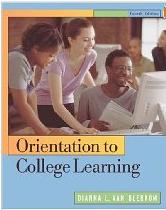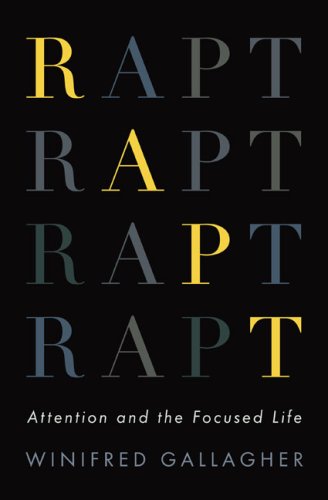 My #1 Study Tip: The "Zone" My #1 Study Tip: The "Zone"
“Who
dares to teach must never cease to learn” – John Cotton
This
is a profound
teaching quote not because it implies the teacher has an unending
fountain of
knowledge to share with a student, but because he is able to empathize
with the experience of being an authentic student.
It
is one thing to "get work done" while distracted (grading papers,
reading
articles, etc), however it is a profoundly different matter to learn
something new and
difficult with
even superficial distractions. This
summer, I myself spent time revisiting some higher level
math. This material
required focus, multiple pass throughs, and drill/kill exercises to
truly drive
home the point and "own" the concept/knowledge (i.e.: The highest
level of synthesis is to be able to recognize when/where to apply it to
real
life situations in the future). When
needing this 100% focus, I realized how many looming distractions I
have at home
that interrupt deep thinking. The productivity of superficial multi-tasking has been debunked.
It
made me reflect on my undergraduate experiences in Mathematics
and
Computer Science, which routinely required deep focus and persistence.
Ironically, my 1990
college
experience had more in common with college in 1940 than 2010. As recently as 1990, we
lived in army style
barracks with cinderblock walls & few amenities: No
TV, no
cell phone/texting, no landline phone (payphone at end of hallway), no
computer/IM/WWW/Facebook (just a PC lab on campus to type papers). With merely a
stereo in an otherwise spartan bedroom, it was *still* easy to get
distracted in your dorm room
(friends, noise, bed, music, etc) Therefore, we quickly
learned that you did not do homework in your room.
I tackled the rigorous coursework in a remote,
desolate, wooden "cubicle" in the library basement. Here, I
could
get into "deep zone"
study for hours on end, with zero interference or stimuli to knock
me out of the zone (See diagram below)
As a teacher, I have
told my students to
find a quiet place at home to study. However, I now realize
that
I can't stress this point enough. Taken to extremes,
you need to be in an empty prison
cell
with a desk, pen, paper, & assignment. For example,
well-intentioned parents might equip their child’s room with a computer
as a learning resource. For a subject like Math, I feel that if
there is even a PC present in the bedroom, or if the cell phone in your pocket is merely on... you
are
opening to door for interruptions and battling potential temptations Odds
are, you will NOT enter (or remain in) the "flow/zone". A
student must keep this in mind when establishing his study area in high
school, college, and beyond.
- Cell Phone OFF: No
texting or phone calls
- Computer OFF: No email,
Facebook, IM, internet, or games.
 | Diagrams adapted from: Orientation to College Learning
|
_______________________________________________________________________________

- The
Duke paper reports that the negative effect on test scores was not
universal, but was largely confined to lower-income households, in
which, the authors hypothesized, parental supervision might be
spottier, giving students greater opportunity to use the computer for
entertainment unrelated to homework and reducing the amount of time
spent studying.
_______________________________________________________________________________

Distraction
- Poor retention: "...when
forced to multitask, the overloaded brain shifts its processing from
the hippocampus (responsible for memory) to the striatum (responsible
for rote tasks), making it hard to learn a task or even recall what
you’ve been doing once you’re done."
- He
sees our distraction as a full-blown epidemic—a cognitive plague that
has the potential to wipe out an entire generation of focused and
productive thought. He compares it, in fact, to smoking. “People aren’t
aware what’s happening to their mental processes,” he says, “in the
same way that people years ago couldn’t look into their lungs and see
the residual deposits.”
- If John Lennon had a BlackBerry, do you think he would have done everything he did with the Beatles in less than ten years?”
_______________________________________________________________________________

| Excerpts from Rapt: Attention and the Focused Life
|
- Learning
tennis is best done between the ages of 8 and 15. The longer you
delay, the harder it will be, and your ability to play will
suffer. This principle applies to all sorts of skills, both
physical and mental, including the ability to concentrate, direct your
focus at will, manage your time. Kids
also need to work at developing the capacity for the concentrated,
sustained attention required to succeed in many endeavors.
- The
young can get away with IM'ing while playing a computer game, but
there's a risk. If you grow up assuming that you can pay
attention to several things at once, you may not realize that the way
you process such things is superficial at best. When you're
finally forced to confront intellectually demanding situations in high
school or college, you may find you've traded depth of knowledge for
breadth, and stunted your capacity for serious thought.
- Studies show that through practice, you can expand your capacity to focus.
- Where big breakthroughs are concerned, getting to "That's it!!" requires not only the intense focus and explicit learning ...but also plenty of (non-conscious) incubation, mind wandering, and implicit learning.
- Science
has determined that multitasking, for most practical purposes, is a
myth. Focusing on 2 demanding activities simultaneously is a
skill that requires months of drilling to acquire, and, even then, is confined to just those two tasks!
- You
may think you're multitasking, but what you're really doing is
switching back and forth between two activities. The extra effort
involved actually makes you less productive. Your overall
performance will be inefficient, error prone, and more time consuming
than if you had done one thing at a time. If your train of
thought is interrupted even for a second, you have to go back and say
"Where was I?" There are startup costs each time as you reload
everything into memory, and people aren't as good at is as they think
they are.
- When you focus on a
demanding task, your brain's hippocampus, which is important to memory,
is in charge. However, if you try to work while distracted by
instant messaging, or the like, the Striatum, which is involved in rote
activities takes over. As
a result, even if you get the job done, your recollection of it will be
more fragmented, less adaptable, and harder to retrieve than it would
be had you given it your undivided attention.
_______________________________________________________________________________

To Deal With Obsession, Some Defriend Facebook
_______________________________________________________________________________
|
